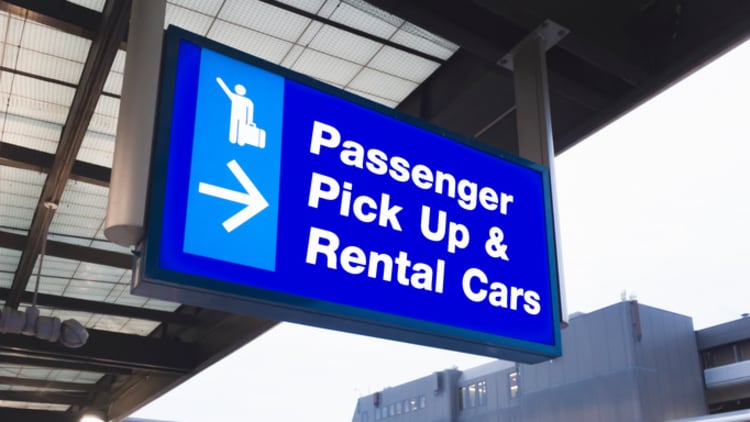
For many, summer is the time to hit the road — especially this year.
A record number of Americans traveled over the Memorial and Independence Day holidays, according to the American Automobile Association.
However, travelers are also paying more to rent a car, the AAA said. At $66, the average daily cost of a car rental is up 2 percent from last year.
Hidden fees and extra charges will only add to that expense, if you’re not careful. Here’s how to avoid those higher costs, and even save money on your overall rental tab during the high season:
1. Opt out of unnecessary coverage
Most people have wised up to the "gas game" and are careful to return their rental with a full tank to avoid the premium rental car companies charge for fuel.
Still, drivers are less savvy about insurance and whether they need it at all. Rental companies may charge an extra $10 to $30 a day or even more, according to Consumer Reports, for various policies, including "Collision Damage” or “Loss Damage Waiver"
Before opting in, check to see if your regular car insurance covers you for temporary use of a rental. Most policies do, particularly if you're renting in the U.S.
Otherwise, you may be covered by your credit card. Some cards, including all Chase and Citi cards provide global auto rental coverage and many cards cover common issues like theft, auto accidents and towing costs if your car rental breaks down.
In addition, all Visa and American Express cards provide a loss damage waiver with coverage of $50,000, or more, in some cases.
If you aren't covered by your own car insurance or a credit card, you may also be able to buy a policy for less than the rental car company would charge.
InsureMyRentalCar.com, for example, offers a daily policy with coverage up to $100,000 for just $6 a day.
2. Avoid extra fees
As convenient as it may be, you will pay more for a car if you pick it up at the airport. The rental agency is generally contractually required to pay a concession fee to the airport and that fee gets passed on to you, which can be 10 percent or more of your total price.
Instead, choose a non-airport location. The cost of a short Uber trip may be less than that airport surcharge without much added hassle.
More from Personal Finance:
These are the 10 US airports where you're most likely to be hacked
With no emergency savings, a single unplanned expense could set you into a tailspin
Secrets of credit card super users
Then, consider forgoing the e-toll transponder if you don’t need it or bring your own. Typically the rental car company will charge $4 to $5 a day for an EZ-Pass, regardless of whether you go through any tolls, plus the tolls themselves.
However, if you turn down the transponder and breeze through a cashless toll without one, the fine, which can be upwards of $100, will quickly negate any savings and then some.
3. Ask for a discount
Finally, check for a discount on the total cost of renting a car. Membership with certain organizations, like AAA, AARP, USAA, Costco and BJs can trim the cost of base rental car rates and in some cases, waive the additional driver fee (Spouses are often covered for no extra charge).
Alternatively, look for discount coupon codes on websites like RetailMeNot.com or Groupon.
Then, see if you can combine the discount with the coupon for a bigger break on your final bill.
"On the Money" airs on CNBC Saturdays at 5:30 a.m. ET. Check listings for air times in local markets.



